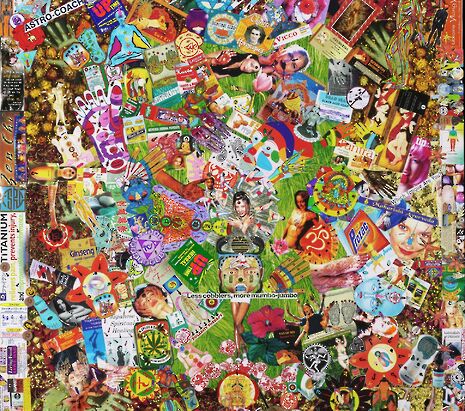Reviving personal politics
Maya Achan argues that issues like racism are as emotional as they are structural

Race is a delicious gold-mine for political analysis. Picking apart confused attempts at political correctness, and calling for increased diversity are favoured pastimes, shared by ethnic minorities and white people alike. We often enjoy dissecting structural inequality, the abstract and immaterial ‘race problems’ that prevail in our university. I have sat through a two-hour seminar in which racism in 1970s Britain was discussed with a cool detachedness, in the same tone in which one might talk about rural farming practices.
The neglect of the ‘personal’ within politics is tied to a desire to be taken seriously, and a need to gain academic legitimacy. When Joan Wallach Scott argued in the 1980s that concepts of gender needed to move out of the domestic setting and be applied to power structures, she was writing during a time in which women’s history was commonly dismissed as over-specialised. A similar process has occurred with regard to race, and as students, we are called upon to be wholly unemotional and objective.
“I would argue that we can strike a balance between these two desires; the need to be an individual, and the responsibility to acknowledge and call out racism.”
For ethnic minorities, however, race will never be just an intellectual discussion. For me, conversations about race are often a process of intellectualising my feelings in order to understand them. The feelings come first, the politics second.
The world which I inhabited from a very young age was filled with ‘race problems’, only I wasn’t empowered with the language or perspective to view them as such. When my grandparents were spat at in the street, or a Year Three teacher jokingly commented that if I washed my hands well enough ‘the colour might come out’, I only saw mean people, and confusing jokes. I had no awareness of my own race, and the politics that came with it. So much was I disassociated from my own colour, that the stories I would write as a child would forefront protagonists named ‘Sophie’ or ‘Amy’, and I truly believed my white best friend was my biological sister.
“The conversations I have about race will not always be paying lip service to a zeitgeist. Instead, they will be exercises in empathy, and an insight into complex selfhood that so often defies political discourse.”
Part of me longs for this purity of thought. That childhood privilege, of being apolitical, allowed me to enjoy the Simpsons and play with white Barbies without feeling angry, or disempowered. As I became more socially aware, the price I paid for understanding my experiences was the feeling of being burdened by them. I want to define myself outside of the strictures of a political identity, one which I didn’t choose, and often feels alien to me.
I have sometimes found, for example, that my white friends become more incensed by racism than I do. My passivity is bound up in exhaustion; I am always expected to be an activist and a spokesperson, and I want to remind myself that I don’t have to be. This was Mindy Kaling’s sentiment, when she shut down a question regarding the diversity of her cast by saying, “I’m a fucking Indian woman who has her own fucking network television show, OK?.” Similarly, in light of Kanye West’s interactions with Trump, Steve McQueen defended him: “What I’m trying to say is I understand it in a way that he wants to be a free black man. He wants to be totally free. Free, free. He wants to be FREE.”
But to maintain that we are ‘totally free’ would be to neglect history, and the shared experience of marginalisation. I would argue that we can strike a balance between these two desires; the need to be an individual, and the responsibility to acknowledge and call out racism. To this end, the term ‘micro-aggression’ is useful. The concept recognises that experiences of race are often both structural and personal. Racism manifests itself in the quotidian- when ordering coffee or walking down the street- but is also attached to an imperial legacy. Reconciling these dimensions means understanding that whilst all ethnic minority lives are impacted by race in some way, those lives are endlessly varied and subjective.
My emotion doesn’t disable me from having productive or academic conversations, it is simply a reminder that racial issues aren’t theoretical for me. I seek to demand from myself, and from others, the recognition of this emotion. As a result, the conversations I have about race will not always be paying lip service to a zeitgeist. Instead, they will be exercises in empathy, and an insight into complex selfhood that so often defies political discourse.
 News / Colleges charge different rents for the same Castle Street accommodation2 March 2026
News / Colleges charge different rents for the same Castle Street accommodation2 March 2026 News / King’s hosts open iftar for Ramadan3 March 2026
News / King’s hosts open iftar for Ramadan3 March 2026 Theatre / Lunatics and leisure centres 4 March 2026
Theatre / Lunatics and leisure centres 4 March 2026 News / Angela Merkel among Cambridge honorary degree nominees27 February 2026
News / Angela Merkel among Cambridge honorary degree nominees27 February 2026 News / News in Brief: waterworks, wine woes, and workplace wins 1 March 2026
News / News in Brief: waterworks, wine woes, and workplace wins 1 March 2026








